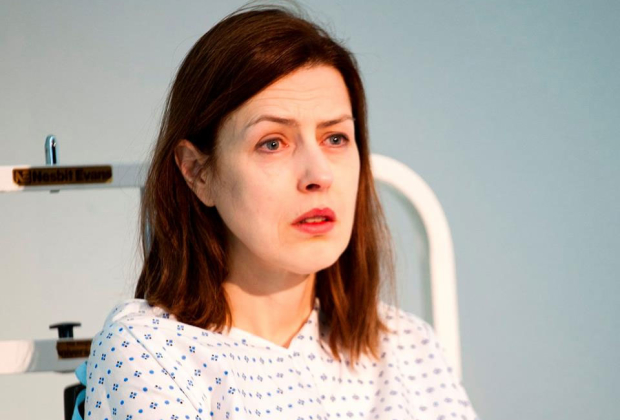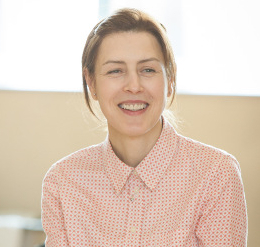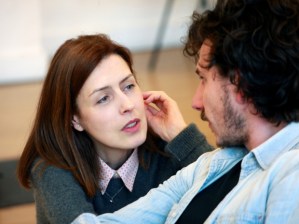
© Simon Annand
Following last years The Father, the Ustinov has now brought Florian Zeller’s first of the double bill, The Mother, to Bath. Again translated by Christopher Hampton, this time directed by artistic director Lawrence Boswell, it has the same elliptical, mysterious tone as The Father, asking us to question everything, not giving out easy answers and gradually revealing the pain and the nuclear damage underneath its exterior.
You leave wanting to pick up the phone to your Mum, to tell her how much you love her, to thank her for every sacrifice, every moment of love she has poured into you. Like its predecessor it shows the sacrifice of a parent and what happens to the human psyche when you lose something fundamental to you. In The Father it was the mind. In The Mother it is the all-consuming bond between mother and child.
Gina McKee‘s Anne, The Mother, sits in her white, stylish, uncluttered living room watching time tick away. She has lost purpose, her children have moved out, barely respond to her calls and she believes her husband is having an affair rather than attending his work seminars. McKee is terrific, her thin angular face, pale and possessed of ethereal beauty; that voice, husky and sensuous, is here turned to a women who can no longer make sense of her place in the world. She is no longer the whore or the mother. She fights, she makes snide comments about wanting her husband dead; she is vicious, she is hopeless.
When her son comes home after a fight with his girlfriend she is triumphant. She tries to force the bond between child and mother, not able to see that he is no longer a boy and that the relationship is becoming toxic. She can’t let go. She appears in a red dress and we see the sensuality of a women not yet ready for middle age but then a younger women appears in the same dress and she becomes invisible.
Richard Clothier is the charming, convivial silver-fox of a husband but we are never sure if this is masking the inner rake or a man fighting to keep hold of his damaged wife. William Postlethwaite as the son is a bounding man child, with a straggly moustache to boot, not fully ready to let go of his mother’s apron strings but changing his allegiance from mother to lover in the way all sons must. Cara Horgan is the young women with no fear of the future, she believes her youth and sexual allure will last forever.
Scenes play out and repeat with slight differences, on emphasis, on who holds the power. Zeller does not answer everything, we’re never sure what is truth and what is fantasy. Hampton is sensitive to the tone, pares things right down and gives Leicester a bit of a kicking as the city where the seminars/romantic assignations are taking place.
I was less warm on first reception to The Father then the rest of my critical colleagues, a feeling I believe which reflects on life experience, but it has since haunted me. This earlier piece frames, questions and refracts that. It’s the most bruising, double bill masterpiece since Strindberg’s The Dance of Death.
The Mother runs at the Ustinov Studio in Bath until 20 June 2015














